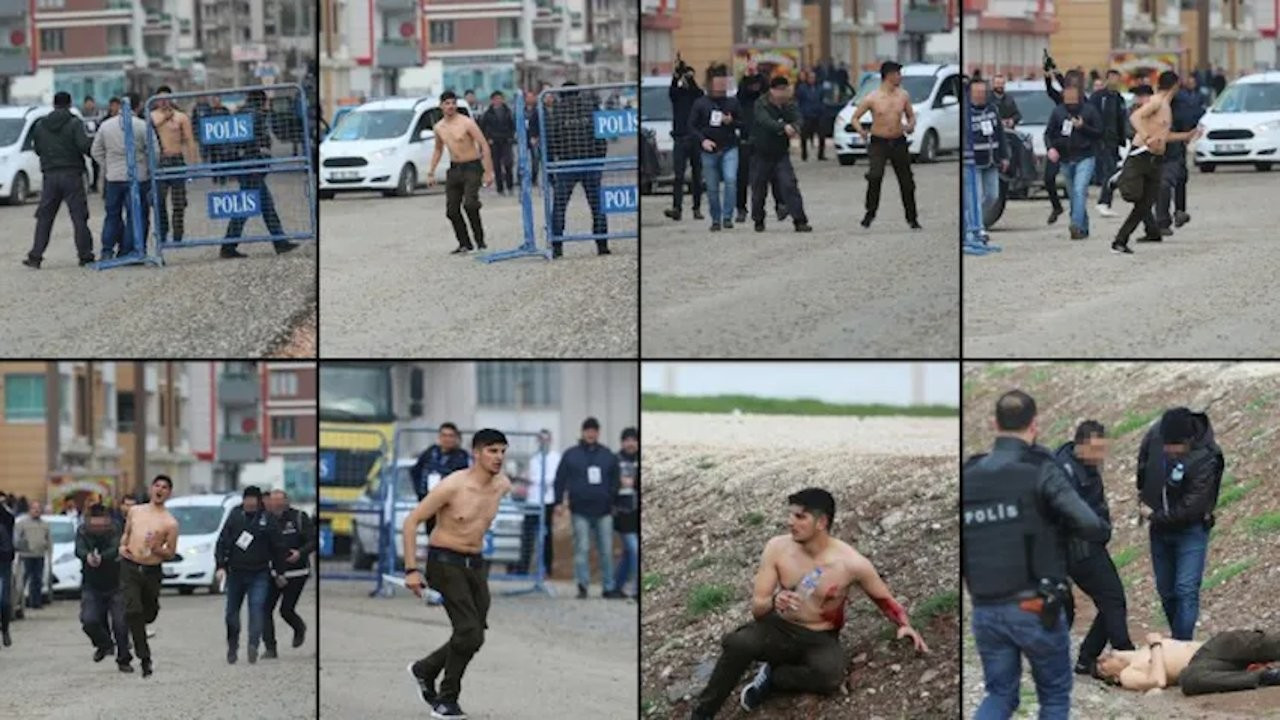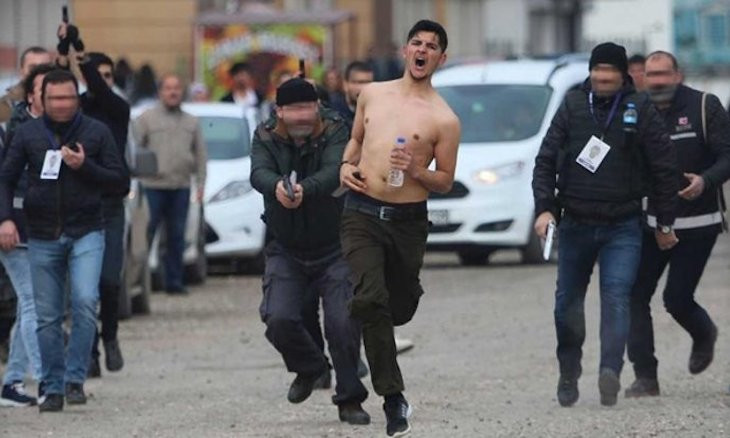Turkish court rules 2017 killing of Kurdish youth Kurkut occurred 'within legal framework'
A Turkish court of appeals has ruled that Kemal Kurkut, who was killed by police during a Newroz celebration in Diyarbakır in 2017, was killed "within the legal framework," Mezopotamya News Agency reported.
Duvar English
A Turkish court of appeals has ruled that no crime could be attributed to the police officer Yakup Şenocak for the murder of a Kurdish youth in 2017 and that the murder was committed within a "legal framework," according to reporting by Mezopotamya News Agency.
The 23-year-old university student Kemal Kurkut was killed by police on March 21, 2017 in the Bağlar district of the southeastern province of Diyarbakır during a Newroz celebration.
Police at the time said that he might have been a suicide bomber - a statement that drew ire since Kurkut was not wearing a shirt, looking unarmed, and did not aim a knife he carried at anyone.
Previously, a court in the southeastern province of Gaziantep evaluated Kurkut as an "aggressive activist" in a decision in January. The court ruled that the murder was "committed within the legal limits" and decided that there was no need to pay compensation.
A similar decision was encountered this time in the case file of the murder suspect Şenocak.
In its decision, the Diyarbakır Regional Court of Justice argued that acts of death and killing that occur in compulsory situations specified in Article 17 of the Constitution, which regulates the "right to life," would not be considered a violation of the right to life.
The appeals court argued that Kurkut's murder remained within the stated legal framework by pointing to the situations that gradually gave the police the authority to use force and weapons.
The journalist who recorded the killing, Abdurrahman Gök, faces up to 20 years in jail for "making propaganda for a terrorist organization."
Police at the time attempted to delete the pictures from Gök's camera to prevent the killing from being seen by the public. The pictures were also crucial in refuting authorities' claims that Kurkut was a suicide bomber.

 Ugly truth behind the Kurkut killing: Turkish police get away with murder, a journalist gets 20 years in jailWorld
Ugly truth behind the Kurkut killing: Turkish police get away with murder, a journalist gets 20 years in jailWorld Expert report deems police shooting of Kurdish man in Diyarbakır 'inexcusable'Human Rights
Expert report deems police shooting of Kurdish man in Diyarbakır 'inexcusable'Human Rights